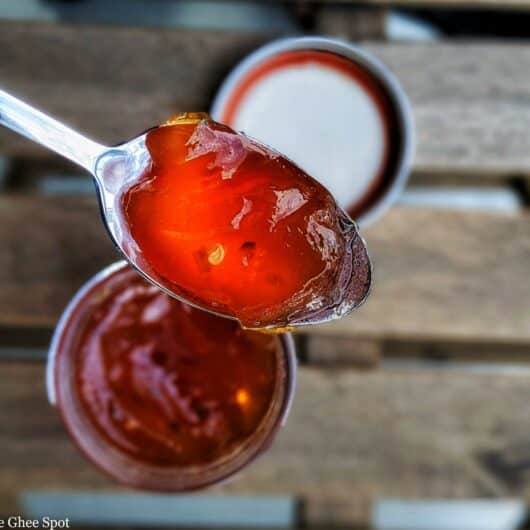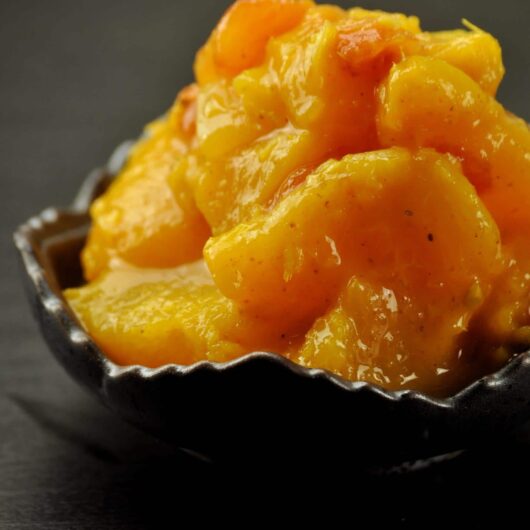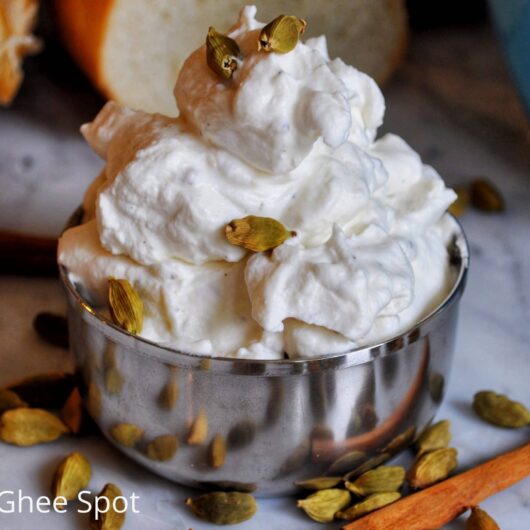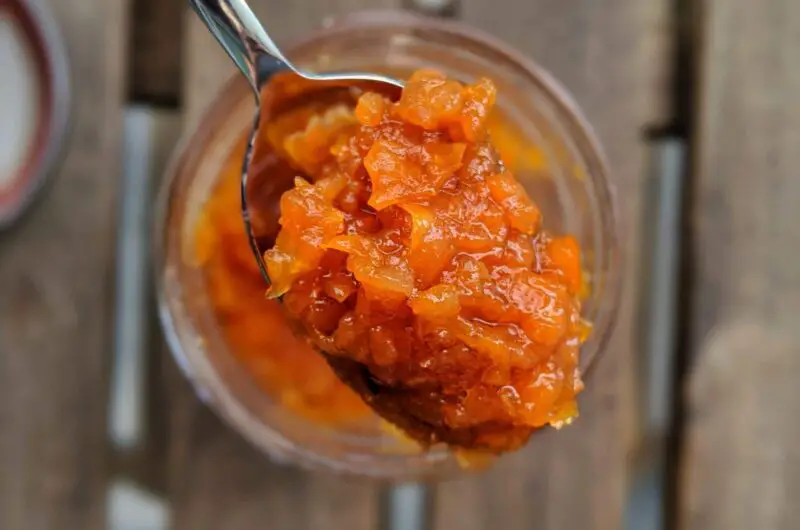Never had loquats or loquat jam? Gasp and double gasp!
The best part about growing up in India is the fruit! Mangoes, guavas, lychees, and loquats, oh my! If I had to venture a guess of how much of each I’ve consumed in my lifetime, I dare say we’d be my body weight in each, and I regret nothing!
It still shocks me how few people know about loquats, especially given that they grow from the south west to the south east. Originally brought over as both fruit trees and shade trees, they were planted in backyards and neighborhood medians. But as with so many things, with time they’ve been forgotten about. And now are “those trees that drop a ton of crap”, simply because people don’t know they’re edible. Needless to say, when I go on my little urban foraging trips thanks to fallenfruit people always stop me to ask why I’m picking the weird berry-things, which leads to an, “OMG ALL THESE YEARS I HAD NO IDEA!” conversation. Btw, if you’re going to urban forage, don’t be a dick and trespass.
Now all of that said, the one thing we don’t tend do do a lot of in Punjab is canning and jamming. So it only seemed natural for me to try my hand at loquat jam. Let me begin by saying it’s effin amazing. Fresh off of the tree the fruit is light and floral in flavor, almost like a pear mixed with a plum. But when you cook it into a jam the flavors intensify in the best way possible! The citrus and floral notes really pick up, as does the sweetness of the loquat.
It’s shockingly easy to make and if canned properly can be stored for up to a year easily. And like any jam you can use it for anything. A topping for toast, almond cardamom sponge cake, or even as the filling for your next Victoria sandwich.
Looking for a few more condiments? Try these:
Nutrition Facts
12 servings per container
Calories145
- Amount Per Serving% Daily Value *
- Total Fat
0.2g
0%
- Sodium 1mg 1%
- Amount Per Serving% Daily Value *
- Potassium 201mg 6%
- Total Carbohydrate
38.4g
13%
- Dietary Fiber 1.3g 4%
- Sugars 29.2g
- Protein 0.3g 0%
- Calcium 1%
- Iron 1%
- Vitamin D 1%
* The % Daily Value tells you how much a nutrient in a serving of food contributes to a daily diet. 2,000 calories a day is used for general nutrition advice.




